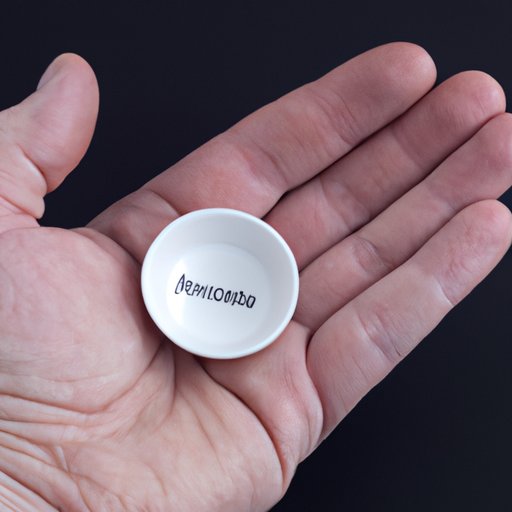
Introduction
Parkinson’s Disease is a progressive neurological disorder that affects millions of people worldwide. While it is not generally considered a fatal condition, it can cause complications that can prove to be life-threatening. In this article, we will provide a comprehensive overview of Parkinson’s Disease, including mortality rates, coping strategies, disease progression, the link between Parkinson’s, and dementia as well as treatment breakthroughs.
“The Truth About Parkinson’s Disease: Can It Be Deadly?”
According to the Parkinson’s Foundation, Parkinson’s Disease is the 14th leading cause of death in the United States. However, this does not mean that Parkinson’s Disease is inherently fatal. Many individuals with Parkinson’s Disease live for decades with the condition.
The mortality rate for Parkinson’s Disease varies. However, studies show that mortality rates for people with Parkinson’s Disease are higher than those of the general population. A study published in JAMA Neurology found that individuals with Parkinson’s disease had a 1.5 times higher risk of dying than those who don’t have it.
Several factors can contribute to death from Parkinson’s Disease, including the age at diagnosis, the stage of the disease, and the presence of comorbidities such as heart disease or stroke. However, it’s important to note that many individuals with Parkinson’s Disease die from unrelated conditions, not directly related to the disease.
There are steps individuals with Parkinson’s Disease can take to reduce the risk of complications or death. These include staying active, adhering to medication regimens, practicing good sleep hygiene, and staying up-to-date on routine healthcare appointments.
“Living with Parkinson’s Disease: Coping Strategies and Tips”
Coping with Parkinson’s Disease can be challenging. Still, there are several strategies individuals can use to manage their symptoms and maintain their overall health and well-being.
Medications are commonly used to manage the symptoms of Parkinson’s Disease, but physical and occupational therapy can also be beneficial. Regular physical therapy can help individuals to maintain flexibility and balance, while occupational therapy can provide practical strategies for managing daily activities.
Maintaining social support systems is also a crucial aspect of living with Parkinson’s Disease. Attending support groups or joining national support organizations can provide individuals with a sense of community and emotional support during difficult times.
Healthcare providers, including neurologists and specialized Parkinson’s Disease care teams, can also support individuals with personalized care plans that account for their unique symptoms, needs, and preferences.
“Understanding the Progression of Parkinson’s Disease: What You Need to Know to Stay Healthy”
Parkinson’s Disease progresses through several stages, each of which is characterized by different symptoms.
The early stage of Parkinson’s Disease may include tremors, rigid muscles, and posture and balance problems. As the disease worsens, individuals may experience more severe symptoms like cognitive decline and hallucinations.
By understanding the stages of Parkinson’s Disease, individuals can take steps to reduce their risk of complications and improve their overall health. For example, maintaining a healthy lifestyle, practicing good sleep hygiene, and adhering to medication regimens can all help to slow the progression of the disease and maintain quality of life.
“The Link Between Parkinson’s Disease and Dementia: What You Need to Know”
Parkinson’s Disease is also linked to cognitive decline and dementia. While not everyone with Parkinson’s Disease will develop dementia, studies show that up to 80 percent of individuals with Parkinson’s Disease go on to develop cognitive impairment over the course of their illness.
Several risk factors can increase the likelihood of developing dementia in individuals with Parkinson’s Disease. These include age, symptom severity, and the presence of comorbidities like diabetes or hypertension.
Managing cognitive decline can be challenging, but there are several strategies that individuals and their caregivers can use to maintain quality of life. These may include brain training exercises, cognitive stimulation, medication management, and specialized therapy.
“Parkinson’s Disease Treatment Breakthroughs: The Latest Advances in Research and Medicine”
While there is no cure for Parkinson’s Disease, there are several promising treatment breakthroughs currently being developed. These include stem cell therapy, gene therapy, and novel medications.
One of the most exciting advances in Parkinson’s Disease treatment is the use of deep brain stimulation, a surgical procedure that involves implanting electrodes into certain areas of the brain. This technique can help to control the tremors and other symptoms of Parkinson’s Disease.
Clinical research is essential in the field of Parkinson’s Disease. Patients and caregivers can participate in clinical trials to help further research and gain access to potential new treatments.
Conclusion
Parkinson’s Disease is a challenging and complex condition that affects millions of individuals worldwide. While it may not be inherently fatal, Parkinson’s Disease can cause complications that can be life-threatening.
Fortunately, there are several strategies individuals can use to manage their symptoms and maintain their health and well-being. By staying active, adhering to medication regimens, and seeking out personalized care, individuals with Parkinson’s Disease can lead fulfilling and meaningful lives.
Reaching out to support groups or national organizations can also help provide individuals with a sense of community and emotional support during difficult times. If you are struggling with Parkinson’s Disease or caring for someone with the condition, know that help is available.




